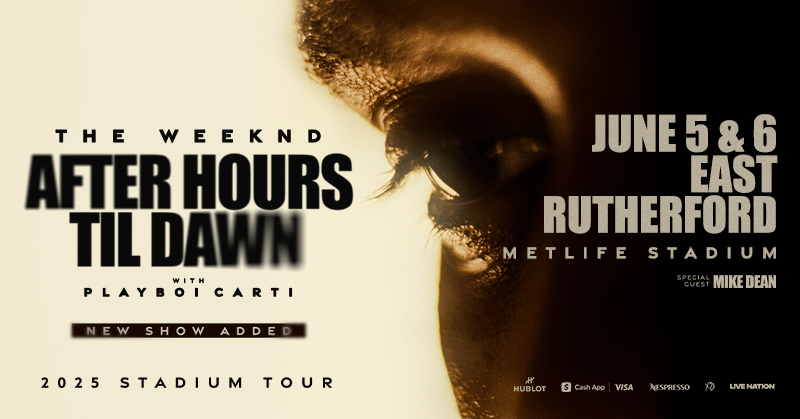The Weeknd’s cinematic debut, Hurry Up Tomorrow, struggled to find its footing at the domestic box office, opening to just $3.3 million across 2,020 theaters. Despite the film’s ambitious scope and a $15 million budget, it failed to crack the top five, weighed down by negative reviews and tepid word-of-mouth.
Released through Lionsgate, Hurry Up Tomorrow functions as a visual companion to The Weeknd’s album of the same name. It stars the artist alongside Jenna Ortega and Barry Keoghan in a surreal narrative that merges music, mental illness, and existential unraveling.
The story centers on a fictional version of The Weeknd, a musician battling insomnia and spiraling toward a breakdown. His descent takes an unexpected turn when a mysterious fan, played by Ortega, pulls him into a dreamlike psychological odyssey. Directed by Waves filmmaker Trey Edward Shults, the film leans heavily on atmosphere, introspection, and abstraction.
The Weeknd—born Abel Tesfaye—conceived the project as a closing chapter to the thematic trilogy that began with After Hours and continued with Dawn FM. But as he revealed in a recent interview with Hypebeast, the film’s emotional core was shaped by a real-life crisis.
“I always wanted to complete the trilogy with something deeply personal—and then something personal actually happened,” he said. “I lost my voice at SoFi Stadium.” That moment, he explained, was not due to a physical injury but a psychological collapse. “My voice has always been my superpower. I’ve performed through fever, grief, heartbreak—anything. But this time, I pushed too far. I needed people to see what I was experiencing internally, and an album alone wouldn’t have done that.”
The film attempts to translate that vulnerability onscreen, but critics were divided. Some praised its ambition and visual flair.
Others dismissed it as self-indulgent and inaccessible. Despite the backlash, The Weeknd’s fanbase remains engaged, continuing to dissect the film’s symbolism and its connection to his music.
Still, Hurry Up Tomorrow faces an uphill battle commercially. With a modest opening and mixed reception, the project stands as a polarizing entry in the artist’s career.
It may not reshape the box office, but it marks a bold artistic statement—one that reflects both Tesfaye’s creative evolution and his willingness to confront his inner turmoil in full view.


Leave a Reply